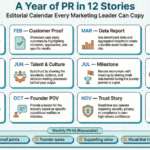Search engine optimization (SEO) and pay-per-click (PPC) advertising are the two cornerstone strategies of digital marketing. Both offer unique advantages, and the choice between them depends on your business goals, budget, and timeline. Whether you’re launching a startup or scaling a well-established brand, understanding the core differences can help you make an informed decision.
In this comprehensive guide, we’ll explore the pros, cons, and use cases of SEO and PPC to help you determine the best fit for your marketing objectives.
What is SEO?
SEO refers to the process of optimizing your website to improve its visibility in organic (non-paid) search engine results. It involves several techniques, including keyword optimization, quality content creation, backlink building, and website performance enhancements.
SEO is often a long-term investment, requiring consistent effort to maintain and improve rankings. However, it can drive sustained traffic, build credibility, and offer a higher ROI over time.
What is PPC?
PPC is a form of digital advertising where advertisers pay a fee each time someone clicks their ad. It enables businesses to bid for ad placement on search engines or social platforms, ensuring instant visibility. Google Ads is the most popular PPC platform, but others like Bing Ads and social media channels such as Facebook and LinkedIn also offer robust PPC solutions.
PPC campaigns can deliver immediate results, making it an attractive choice for businesses needing rapid traffic or short-term gains.
Key Differences Between SEO and PPC
Cost Structure
- SEO: Investment involves time, tools, and expertise. While there are no direct costs for clicks, building authority and rankings require resources.
- PPC: You pay per click, and costs depend on keyword competition. High-demand keywords can lead to expensive campaigns.
Traffic Generation
- SEO: Gradual but sustained traffic growth over time.
- PPC: Instant traffic, but it stops once you stop paying.
ROI
- SEO: Often offers higher ROI over the long term but requires patience.
- PPC: Delivers measurable results quickly, though costs can limit ROI if not managed properly.
The Benefits of SEO
Cost-Effective Long-Term Strategy
SEO provides ongoing traffic without recurring ad spend. With a well-optimized website, you can enjoy steady leads and conversions.
Credibility and Trust
Websites that rank high organically often gain more trust from users. They appear more authoritative compared to paid advertisements.
Sustainability
Once established, SEO efforts continue to yield results, making it a sustainable strategy for businesses with long-term goals.
The Benefits of PPC
Speed and Control
PPC campaigns can be launched quickly, and results are almost immediate. You control the budget, ad placement, and targeting.
Precision Targeting
With PPC, you can segment audiences based on demographics, interests, and behavior. This ensures your ads reach the right people.
Scalability
Scaling PPC campaigns is straightforward. By increasing the budget, you can expand your reach and impact instantly.
When to Choose SEO
- If your business aims for long-term growth and brand building.
- When you have a limited budget for immediate ad spend but can invest time and effort in organic growth.
- If your target audience frequently uses search engines to find your products or services.
When to Choose PPC
- If you need immediate visibility and traffic, such as during product launches or seasonal promotions.
- When targeting a highly specific audience with tailored messaging.
- If you have a flexible budget to support ongoing ad spend.
Can SEO and PPC Work Together?
Absolutely! Combining SEO and PPC can create a robust digital marketing strategy. While SEO builds long-term authority, PPC drives immediate results. This synergy can maximize visibility and help businesses dominate search engine results pages (SERPs).
SEO vs. PPC for Small Businesses
For small businesses, the choice between SEO and PPC depends largely on resources and goals:
- SEO is ideal for businesses with limited budgets but time to invest in organic growth.
- PPC suits small businesses needing quick wins and local targeting.
SEO vs. PPC for E-Commerce
In e-commerce, SEO helps attract organic traffic for high-intent keywords, while PPC drives immediate sales through targeted ads. An integrated approach often yields the best results.
Measuring Success: SEO Metrics vs. PPC Metrics
SEO Metrics
- Organic traffic
- Domain authority
- Conversion rates
- Keyword rankings
PPC Metrics
- Click-through rate (CTR)
- Cost-per-click (CPC)
- Quality Score
- Return on ad spend (ROAS)
Common Misconceptions About SEO and PPC
“SEO is Free”
While clicks don’t cost money, SEO requires significant effort and resources to achieve success.
“PPC Guarantees Conversions”
PPC drives traffic, but poorly optimized campaigns can lead to wasted spend without results.
Tips for Choosing Between SEO and PPC
- Assess your budget and decide whether you can sustain PPC costs.
- Consider your timeline—opt for SEO for long-term growth and PPC for immediate results.
- Define your goals: brand authority (SEO) vs. quick traffic (PPC).
Conclusion
Choosing between SEO and PPC depends on your business’s unique goals, budget, and timeline. While SEO is a long-term investment that builds credibility and organic traffic, PPC delivers instant results with precise targeting. The best strategies often involve integrating both approaches to achieve sustainable growth and visibility.
Frequently Asked Questions About SEO vs. PPC
Q1. What is the primary difference between SEO and PPC?
Answer: SEO focuses on improving organic rankings over time, while PPC involves paying for instant visibility through ads.
Q2. Is SEO or PPC better for a new website?
Answer: For new websites, PPC can drive immediate traffic, while SEO lays the foundation for sustainable growth.
Q3. Which is more cost-effective, SEO or PPC?
Answer: SEO is more cost-effective in the long term, while PPC offers quick results but requires consistent spending.
Q4. Can I use both SEO and PPC at the same time?
Answer: Yes, combining SEO and PPC creates a balanced approach that maximizes visibility and ROI.
Q5. How long does it take for SEO to show results?
Answer: SEO typically takes 3-6 months to deliver noticeable improvements, depending on competition and effort.
Author Profile

- Nitin Jain - C.E.O - India PR Distribution
- Nitin Jain is the founder and C.E.O of India PR Distribution - India's top Press Release Distribution and PR Agency. Nitin has more than 20 years of experience in PR, Corporate Communications, Digital Marketing, Branding Strategy and Lead generation.
Latest entries
 Press releaseJanuary 31, 2026A Year of PR in 12 Stories: The Editorial Calendar Every Marketing Leader Can Copy
Press releaseJanuary 31, 2026A Year of PR in 12 Stories: The Editorial Calendar Every Marketing Leader Can Copy EntrepreneursJanuary 5, 2026Nitin Jain Entrepreneur Behind India PR Distribution Success
EntrepreneursJanuary 5, 2026Nitin Jain Entrepreneur Behind India PR Distribution Success Press releaseNovember 20, 2025Meet Nitin Jain: CEO of India PR Distribution
Press releaseNovember 20, 2025Meet Nitin Jain: CEO of India PR Distribution Search OptimizationSeptember 16, 2025What Is Digital PR and Why It Matters for SEO Success
Search OptimizationSeptember 16, 2025What Is Digital PR and Why It Matters for SEO Success

